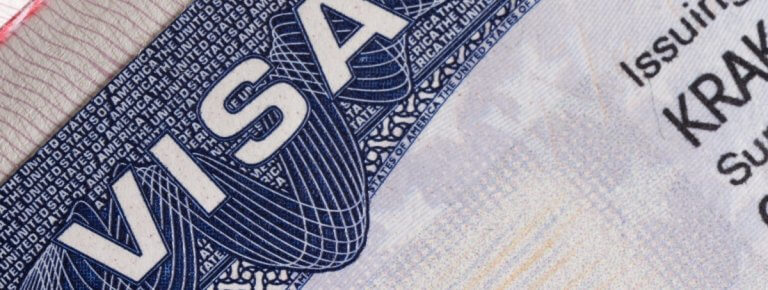
If you’re planning to attend an academic or language training program at a college, university or any other accredited academic institution in the US, you’ll need an F-1 study visa.
Part of this application includes an interview to determine whether or not you qualify to receive the visa. This can be a fearful moment for many applicants, but there’s no reason to panic if you prepare ahead of time.
Here are our top tips on how to get prepared:
1. Know the usual questions
The interview questions often focus on four main issues: ties to your home country; academic qualifications; your chosen college or university in the US; and how you will finance your education.
Based on these, here are how the officer may phrase the inquiries:
- Why did you choose to study in the US instead of joining the workforce in your home country?
- Why did you choose this school and why is it the best school for you?
- What are your test scores (GRE, GMAT, SAT, TOEFL, IELTS), your GPA, and your overall performance as a student in the past?
- How are you funding the entire duration of your education, including tuition, room and board, transportation and other expenses?
- After you graduate, will you return home or will you stay in the United States?
2. Practise your English
Source: Giphy
The interview will be conducted in English and not in your native language. Thus, it’s important to practise your conversational English – preferably with a native speaker – beforehand. There may be a question about why and how English will be beneficial for you in your home country if the purpose of your trip to the US is to study English.
3. Know the program and how it fits your career plans
The purpose of the visa is to issue you legal residence in the US throughout your studies. The focus here is on your study programme, so as stated above, you should be able to explain to the consular officer that you are indeed planning to study, rather than to immigrate.
Additionally, you should articulate how studying in the US will help with your future career options in your home country.
4. Employment should not be your main goal to go to the US
If you want that visa approved, you’d do well to remember this: finding work isn’t why you’re heading to the US, studying is. This should be made crystal clear in your interview answers. While you may be allowed to work part-time while studying, you should state that this isn’t your primary goal before, during or after your studies.
The officer would need to ascertain that you have strong ties with your home country, ensuring you will return there after completing your studies in the US.
Explain that you have family, a job offer waiting, assets (land, car, etc) or investments in your home country for you to return to.
5. Prepare all documents and receipts
The consular office may ask for certain documents from you. Make sure your documents are filed and neatly catalogued so they can be shown to the officer.
You may be told to only bring your application/appointment letter but in the occasion the officer in charge wants to see other documentation, it would be handy to have these on your person:
Personal Information
- Passport (Current and previous)
- MRV Fee Receipt
- Visa Interview Appointment Letter
- DS 160 Confirmation Slip (with the Bar Code clearly visible)
- SEVIS Fee Receipt
- Passport Size Photograph (As per regulations mentioned)
Education Documents
- Acceptance letter to US university
- High school and pre-university qualifications or equivalent
- GRE/GMAT/SAT Scorecard
- IELTS/TOEFL Scorecard
- Bachelor’s Degree/ Provisional Degree Certificate or Course Completion Certificate or Mark-sheet for all the years as well as the consolidated mark sheet (if applicable)
Financial Documents
- Loan approval letter (if applicable)
- Bank account statement (Recommended: Last Three Years)
- Fixed deposit certificates (Recommended: Last Three Years)
- Tax Returns for the past three years
- Property documents
6. Arrive on time
Wait times for interview appointments vary by location, season and visa category, so you should schedule your interview appointment early on.
On the day before the interview, try to get a good night’s rest so you can leave with plenty of time to promptly arrive at your embassy or consulate. Dress smartly and not too casual.
The key is for you to arrive at the interview calm (and with extra time to review your preparation) so the whole process will be a breeze.
So your F-1 visa application got rejected – what’s next?
Top tips for F-1 students waiting for their H-1B application results







